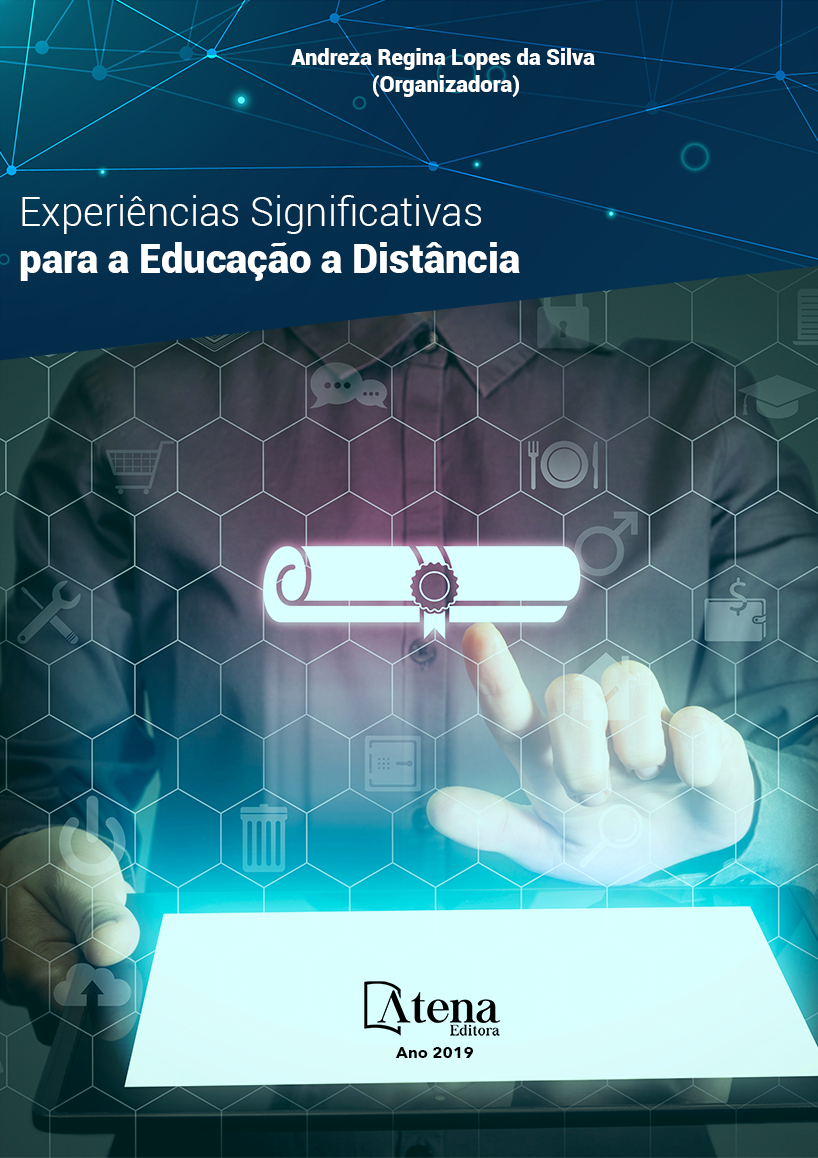
CONECTANDO LINGUAGENS: VIVÊNCIAS E APRENDIZAGENS DIGITAIS EM UM CURSO DE FORMAÇÃO DE PROFESSORES NA MODALIDADE A DISTÂNCIA
Relato de experiência que
descreve a prática vivida em torno da inclusão
digital de professores que estão em processo
de formação em nível Superior, em um curso
de graduação em Pedagogia, ofertado na
modalidade a distância, por uma universidade
pública. O referido curso trata-se de uma
parceria entre a Secretaria Municipal de
Educação de um município do estado do Paraná
e uma instituição de ensino superior, para a
oferta do Curso para os profissionais da rede
municipal que ainda não possuem formação em
nível Superior, mas que atuam como docentes
na Educação Infantil. Partindo deste contexto,
e compreendendo que vivemos a cibercultura
(LÈVY, 1999), acreditamos que a inclusão digital
do professor, em tempos atuais, mostra-se uma
exigência e um desafio. Neste sentido, o objetivo
foi investigar de que maneira a inclusão digital
ocorre neste curso de graduação. Acreditamos
que este levantamento, mesmo tendo um cunho
exploratório, seja fundamental para (re) pensar
a formação do professor em um contexto da
cibercultura, pois entende-se que a inclusão
digital do professor é uma condição básica
de cidadania e condição sine quanon para
pensar práticas pedagógicas significativas
com a inserção de tecnologias digitais nas
escolas. Propôs-se entrevistas e escutas
qualificadas que permitiram analisar a inclusão
digital destes profissionais a partir de três
perspectivas: de autoria, de autonomia e das
relações sociais. Foram preponderantes para
o embasamento teórico, autorescomo Almeida
(2004), Morin (2011), Belloni (2006), Santaella
(2013).
CONECTANDO LINGUAGENS: VIVÊNCIAS E APRENDIZAGENS DIGITAIS EM UM CURSO DE FORMAÇÃO DE PROFESSORES NA MODALIDADE A DISTÂNCIA
-
DOI: 10.22533/at.ed.5791915041
-
Palavras-chave: Educação a Distância. Formação de professores. Inclusão digital.
-
Keywords: e-Learning. Teacher training. Digital inclusion
-
Abstract:
Experience report describing
the practice lived around the digital inclusion
of teachers who are in the process of training
at the Higher level, in a graduate course in
Pedagogy, offered as a remote course by a
public university. This course is a partnership
between the Municipal Department of Education
of a municipality in the state of Paraná and a
higher education institution for the provision of
the Course for professionals in the municipal
network who do not yet have a higher education
level, but who act as teachers in Early Childhood
Education. Starting from this context, and
realizing that we live a cyberculture (LÈVY,
1999), we believe that the digital inclusion of the
teacher, in current times, is a requirement and
a challenge. In this sense, the objective was
to investigate how digital inclusion occurs in this course of Graduation in Pedagogy
e-Learning. We believe that this survey, even having an exploratory character, is
fundamental to (re) think the teacher’s curriculum in the context of cyberculture, since
it is understood that the digital inclusion of the teacher is a basic condition of citizenship
and sine qua non condition to think significant pedagogical practices with the inclusion
of digital technologies in schools. Qualified interviews and eavesdropping were
proposed to analyze the digital inclusion of these professionals from three perspectives:
authorship, autonomy and social relations. Predictors for the theoretical basis were
authors such as Almeida (2004), Morin (2011), Belloni (2006), Santaella (2013).
-
Número de páginas: 15
- Elizandra Jackiw


